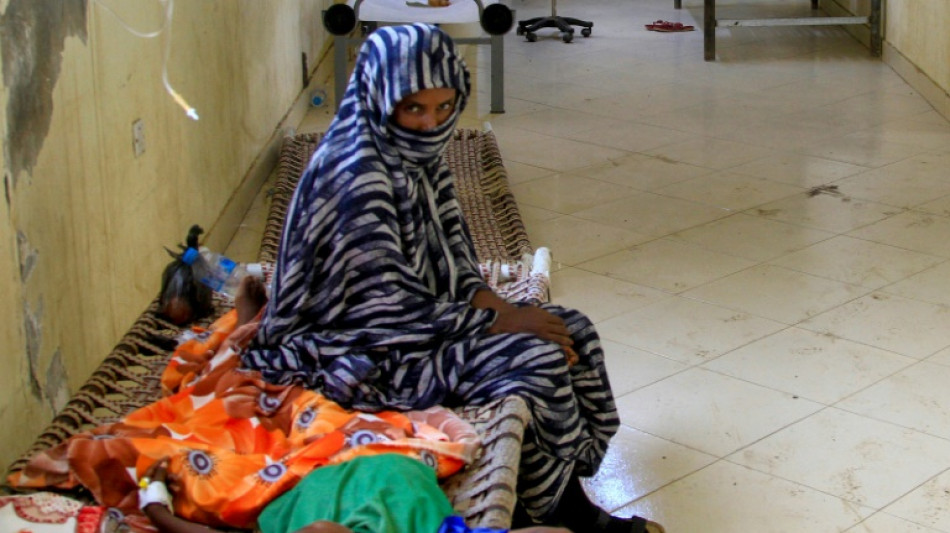
-
 Milan deny Roma top spot in Serie A, Inter beat Verona
Milan deny Roma top spot in Serie A, Inter beat Verona
-
Lens back up to third in Ligue 1 as Lyon held at Brest

-
 NFL-best Colts fall to Steelers, Packers lose to Carolina
NFL-best Colts fall to Steelers, Packers lose to Carolina
-
'Regretting You' wins spooky slow N. American box office

-
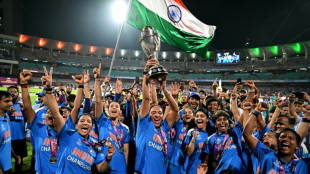 'Just the beginning' as India lift first Women's World Cup
'Just the beginning' as India lift first Women's World Cup
-
Will Still sacked by struggling Southampton

-
 Malinin wins Skate Canada crown with stunning free skate
Malinin wins Skate Canada crown with stunning free skate
-
Barca beat Elche to recover from Clasico loss

-
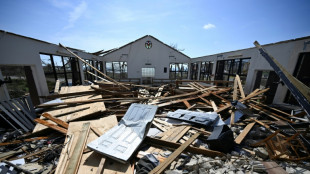 Jamaica deaths at 28 as Caribbean reels from colossal hurricane
Jamaica deaths at 28 as Caribbean reels from colossal hurricane
-
Verma and Sharma power India to first Women's World Cup triumph
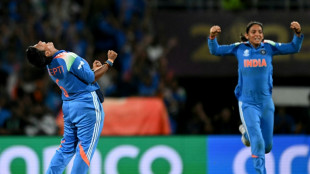
-
 Auger-Aliassime out of Metz Open despite not yet securing ATP Finals spot
Auger-Aliassime out of Metz Open despite not yet securing ATP Finals spot
-
Haaland fires Man City up to second in Premier League

-
 Sinner says staying world number one 'not only in my hands'
Sinner says staying world number one 'not only in my hands'
-
Ready for it? Swifties swarm German museum to see Ophelia painting

-
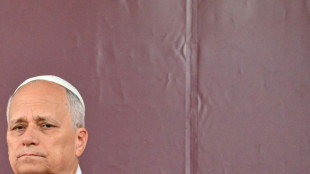 Pope denounces violence in Sudan, renews call for ceasefire
Pope denounces violence in Sudan, renews call for ceasefire
-
Kipruto, Obiri seal Kenyan double at New York Marathon

-
 OPEC+ further hikes oil output
OPEC+ further hikes oil output
-
Sinner returns to world number one with Paris Masters win
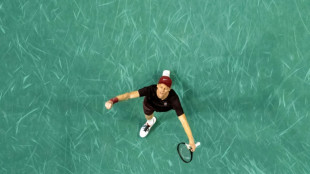
-
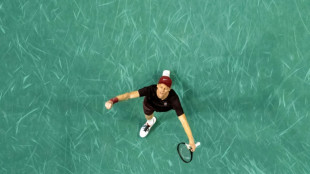 Sinner wins Paris Masters, reclaims world No. 1 ranking
Sinner wins Paris Masters, reclaims world No. 1 ranking
-
Nuno celebrates first win as West Ham boss

-
 Obiri powers to New York Marathon win
Obiri powers to New York Marathon win
-
Two Louvre heist suspects a couple with children: prosecutor

-
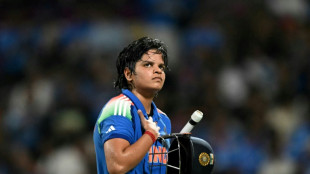 Verma, Sharma help India post 298-7 in Women's World Cup final
Verma, Sharma help India post 298-7 in Women's World Cup final
-
Inter snapping at Napoli's heels, Roma poised to pounce

-
 India space agency launches its heaviest satellite
India space agency launches its heaviest satellite
-
Wolves sack Pereira after winless Premier League start

-
 Debutants Berkane among CAF Champions League top seeds
Debutants Berkane among CAF Champions League top seeds
-
Sundar steers India to five-wicket win over Australia in 3rd T20

-
 What we know about the UK train stabbings
What we know about the UK train stabbings
-
Jonathan Milan wins wet Tour de France Singapore Criterium

-
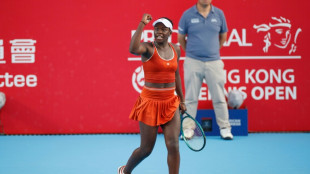 Canadian teen Mboko wins Hong Kong Open for second WTA title
Canadian teen Mboko wins Hong Kong Open for second WTA title
-
Two children among dead in Russian blitz on Ukraine
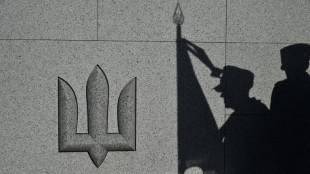
-
 South Africa opt to bowl against India in Women's World Cup final
South Africa opt to bowl against India in Women's World Cup final
-
Dominant McKibbin wins Hong Kong Open to seal Masters spot

-
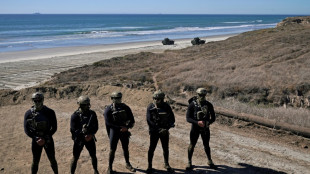 US Navy veterans battle PTSD with psychedelics
US Navy veterans battle PTSD with psychedelics
-
'Unheard of': Dodgers in awe of iron man Yamamoto

-
 UK police probe mass train stabbing that wounded 10
UK police probe mass train stabbing that wounded 10
-
'It's hard' - Jays manager Schneider rues missed chances in World Series defeat

-
 Women's cricket set for new champion as India, South Africa clash
Women's cricket set for new champion as India, South Africa clash
-
Messi scores but Miami lose as Nashville level MLS Cup playoff series

-
 Dodgers clinch back-to-back World Series as Blue Jays downed in thriller
Dodgers clinch back-to-back World Series as Blue Jays downed in thriller
-
Vietnam flood death toll rises to 35: disaster agency
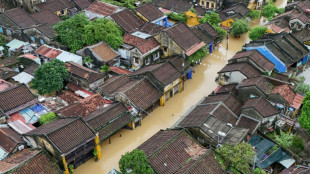
-
 History-making Japan golf twins push each other to greater heights
History-making Japan golf twins push each other to greater heights
-
Death becomes a growing business in ageing, lonely South Korea
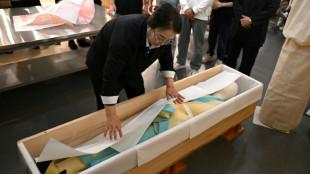
-
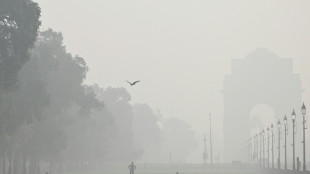 India's cloud seeding trials 'costly spectacle'
India's cloud seeding trials 'costly spectacle'
-
Chiba wins women's title, Malinin leads at Skate Canada

-
 Siakam sparks injury-hit Pacers to season's first NBA win
Siakam sparks injury-hit Pacers to season's first NBA win
-
Denmark's fabled restaurant noma sells products to amateur cooks
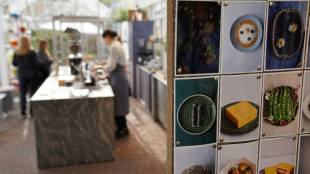
-
 UK train stabbing wounds 10, two suspects arrested
UK train stabbing wounds 10, two suspects arrested
-
Nashville top Messi's Miami 2-1 to level MLS Cup playoff series


War-ravaged Sudan battles cholera epidemic
Lying on a hospital bed, Aisha Mohammed said she is "suffering" from cholera symptoms, an increasingly common ailment in Sudan where a prolonged war has ravaged the healthcare system.
Cholera, caused by contaminated water or food, had been common in Sudan particularly during the rainy season even before war broke out in April 2023 between rival generals.
But more than 16 months of fighting have forced most hospitals out of service, leaving the country of 48 million people struggling to control the sometimes deadly but treatable disease.
In the southeastern Sudanese town of Wad al-Hulaywah, 40-year-old Mohammed receives intravenous medicine to ease her crippling symptoms.
"I'm suffering from acute diarrhoea," she whispered.
Sudanese authorities and the United Nations have reported a surge in cholera cases amid several weeks of torrential rains that have battered parts of Sudan and displaced thousands.
Rains and floods have contributed to a resurgence of the largely waterborne disease, which can cause severe dehydration and lead to death within hours if not treated.
The health ministry on Monday declared an epidemic, later reporting 556 cholera cases including 27 deaths, most in Kassala state where Wad al-Hulaywah is located.
Nearby Gedaref state has also been hit particularly hard, the ministry said.
The World Health Organization said Sudan has had at least 11,327 cholera cases, 316 of them deadly, since June 2023.
Sudan's Health Minister Haitham Ibrahim said "climatic conditions and water contamination" were behind the epidemic.
In Wad al-Hulaywah alone, "we've counted 150 cases so far, among them seven dead" since late July, local health official Adam Ali told AFP.
- 'Polluted water' -
Before the start of the war between Sudan's army and paramilitary forces, the UN had said that about 40 percent of Sudanese did not have access to clean water. Conditions have since worsened.
"Our problem is drinking water," said Ali.
Most residents of Wad al-Hulaywah "drink water directly from the river -- polluted water", he said.
During the rainy season, large amounts of silt are washed into the Setit river, which begins in neighbouring Ethiopia, increasing pollution levels, the health official added.
Near the local hospital, workers spray insecticide to fight the proliferation of flies, which Ali said was a symptom of poor sanitation.
Dam construction in 2015 on the Setit river had displaced "entire villages", he said, and their inhabitants "dug makeshift latrines, which attract flies because they are not maintained".
Access to clean water has been hampered across the country, in areas under either the army or the paramilitary Rapid Support Forces, both vying for control of Sudan.
- 'I will have no one' -
The paramilitaries have laid siege to entire areas, preventing the entry of fuel needed to pump clean water, while bureaucratic hurdles and fighting have blocked aid operations, putting key water stations out of service.
The war has killed tens of thousands of people, displaced more than 10 million and shuttered more than 70 percent of Sudan's healthcare facilities, according to the UN.
The rival forces have both been accused of war crimes, including targeting civilians and looting or obstructing humanitarian aid.
With Sudan facing what the UN has called "one of the worst humanitarian crises in recent memory" and aid groups unable to help, many feel they have to fend for themselves.
Sitting outside a hospital in Kassala, 49-year-old Hassan al-Junaid said he has been displaced by the war, and now "we are living in very bad conditions, which caused my sister to get cholera."
"I am the only one with her, but I can't go with her inside because she has been placed in quarantine," he said.
"So I'm staying here, worried for her and afraid that I might be infected myself," added Junaid.
"If that happens, I will have no one to buy me the medicine I would need."
H.Kuenzler--VB




